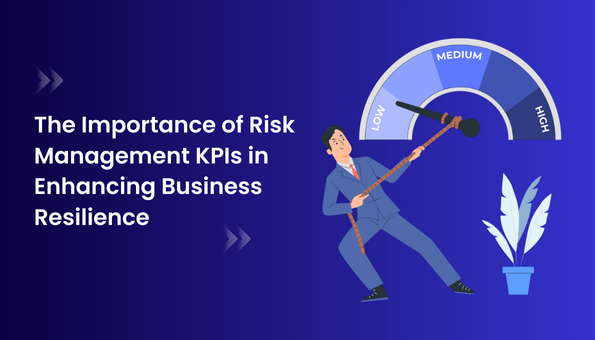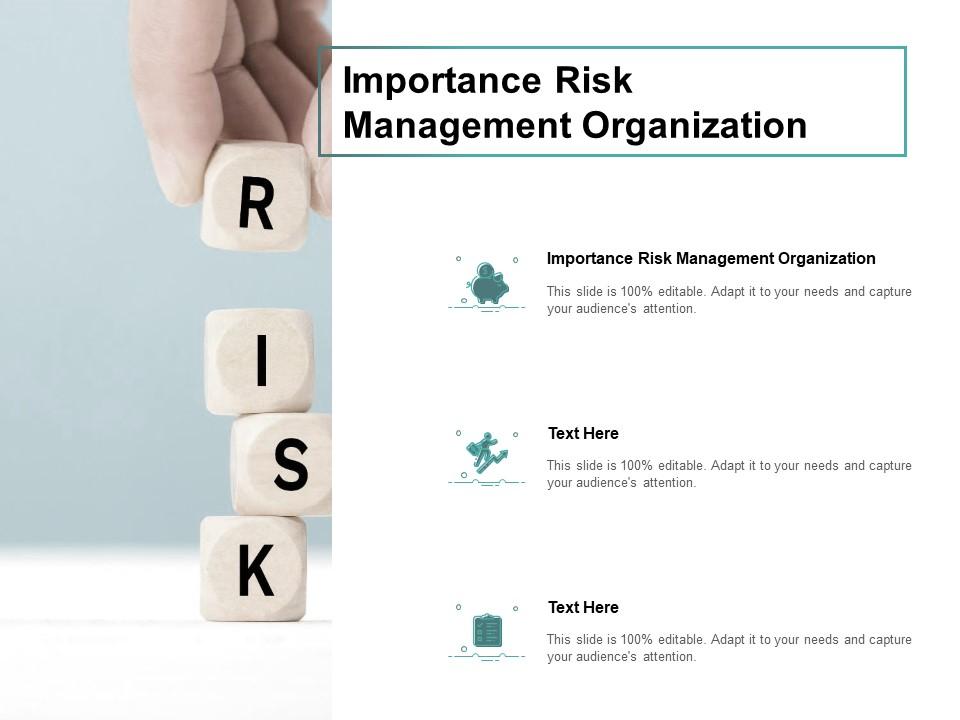The Strategic Importance of Risk Management in Building Competitive Advantage
The Strategic Importance of Risk Management in Building Competitive Advantage
Blog Article
The Significance of Comprehending the Value of Risk Management in Different Industries

The Core Idea of Risk Management and Its Objective
Risk Management, the keystone of numerous markets, depends upon the identification, evaluation, and mitigation of unpredictabilities in an organization atmosphere. It is an indispensable technique that permits organizations to protect their assets, online reputation, and overall survival. By correctly determining possible threats, organizations can establish techniques to either avoid these threats from happening or minimize their impact. The examination procedure entails assessing the probability and potential severity of these threats. The reduction process includes devising strategies to lower their potential effect when risks have been recognized and examined. This procedure is continuous and cyclical, making sure that companies are planned for the ever-changing nature of Risk in various sectors. The primary objective, hence, is to cultivate resilience in the middle of uncertainties.
Benefits of Executing Risk Management in Company Workflow

Introducing the Role of Risk Management in Different Industries
While every sector challenges its unique set of risks, the implementation of Risk Management techniques continues to be a common measure in their pursuit of sustainability and growth. In the medical care sector, Risk Management entails making certain patient safety and data security, while in finance, it includes mitigating investment risks and making certain regulative compliance (importance of risk management). Building and construction firms concentrate on employee safety, job hold-ups, and budget overruns. In the modern technology industry, firms mitigate cybersecurity hazards and innovation obsolescence. Eventually, the role of Risk Management across markets is to identify, analyze, and mitigate dangers. It is a crucial part of strategic preparation, making it possible for organizations to safeguard their assets, maximize opportunities, and accomplish their goals.
Real-life Situation Researches Demonstrating Effective Risk Management
To comprehend the significance of Risk Management in these numerous sectors, one can seek to several real-life instances that highlight the effective application of these actions. In the energy sector, British Petroleum established Risk mitigation intends post the 2010 Gulf of Mexico oil spill. They implemented better safety and security procedures and stricter regulations which dramatically minimized additional mishaps. In money, Goldman Sachs successfully browsed the 2008 find out this here economic situation weblink by determining possible mortgage-backed safety and securities risks early. Last but not least, Toyota, publish the 2011 earthquake in Japan, revised its supply chain Management to reduce disturbance dangers. These situations demonstrate just how sectors, gaining from situations, efficiently applied Risk Management approaches to decrease future dangers.
Future Trends and Advancements in Risk Management Techniques
As the globe remains to advance, so also do the patterns and developments in Risk Management strategies. Rapid advancements in technology and data analytics are improving the Risk landscape. Huge data and AI are currently instrumental in anticipating and minimizing risks. Organizations are leveraging these devices to develop anticipating versions and make data-driven decisions. Cybersecurity, once an outer concern, has actually catapulted to the leading edge of Risk Management, with methods concentrating on detection, response, and avoidance. The assimilation of ESG (Environmental, Social, Administration) variables right into Risk Management is an additional expanding fad, reflecting the boosting acknowledgment of the duty that environmental and social risks play in company sustainability. Therefore, the future of Risk Management hinges on the fusion of advanced modern technology, innovative strategies, and an alternative technique.
Verdict
In final thought, recognizing the importance of Risk Management throughout a spectrum of sectors is critical for their durability and prosperity. Tailored approaches can aid minimize prospective dangers, guard assets, and foster stakeholder count on. Additionally, positive decision-making help in regulatory conformity and enhances resource usage. Inevitably, successful Risk Management adds to more lasting and resistant companies, highlighting the significance visit this website of this method in today's dynamic and highly affordable service environment.
While every industry confronts its unique collection of threats, the execution of Risk Management techniques remains a common in their quest of sustainability and growth. In the health care industry, Risk Management involves guaranteeing client safety and information security, while in financing, it involves mitigating financial investment dangers and making sure regulative compliance. Inevitably, the duty of Risk Management across industries is to identify, evaluate, and reduce risks. These situations demonstrate exactly how industries, finding out from dilemmas, successfully applied Risk Management techniques to reduce future risks.

Report this page